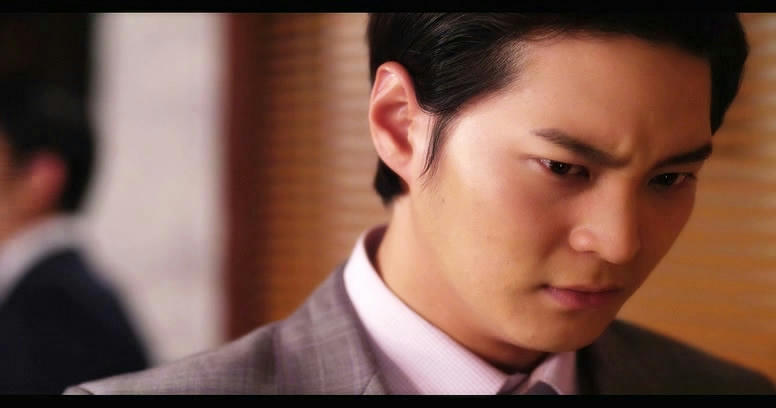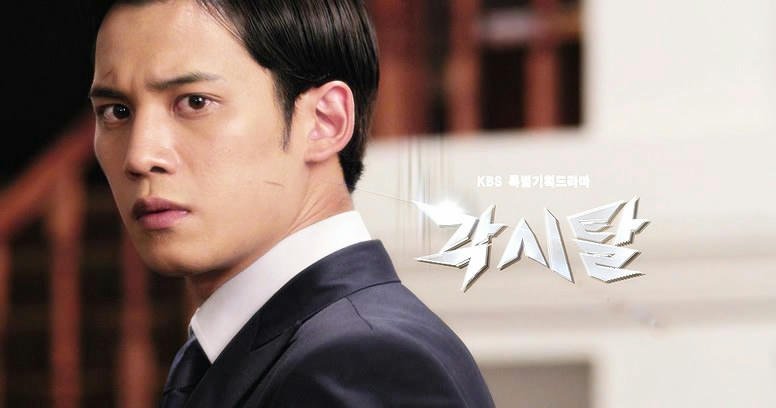-The
one works death, the other heals disease.
(Ion by Euripides)
The
last time any drama made me think of and dissect so much every second scene was
The Princess’ Man. Both series are set in tumultuous and bloody times
in Korean history, the former when Prince Suyang deposed his nephew and had hundreds
of people slaughtered and the latter during Japanese occupation. Both series are
tense and heavy. And both deal with treason.
I
mentioned it once that I have few fetishes I can’t break free from, one is
treason that fascinates me to the point of some unhealthy obsession, and the
other is the concept of border. The ontological status of the border, to be
more precise. The same goes for dawn, twilight moment, and also shadows, because
they bear the same notion. So, let me delve more into this bloody dawn.
First,
I have to repeat what Shin Hyeonjun said about it. He praised Ju Won’s courage
for accepting the role of Kangto as it might ruin his image (what image? He
never played “kid next door” anyway). That wouldn’t be surprising, but remember
we’re in Korea,
where viewers demand that the actor HAS to always play the same type of roles.
So if Ju Won was likeable Taehee, it’s more than natural than morons would
prefer him playing once again a likeable character. While Kangto is everything
but likeable. As stupid as it may sound, this is the harsh reality in the Land of Morning Insanity. Developing as the
artist is not that relevant to viewers, I guess.
Shin
Hyeonjun is in a far more comfortable position to say that, he played different
characters throughout his whole career, retards included, so there is
absolutely nothing he’d fear or – more important – has to fear. But he was damn
right to point out this sensitive issue, especially that this series constantly
balances between enraging and pleasing viewers. It throws in many unpleasant
things, images, words, behaviors, characters. It doesn’t allow self-pity and
wailing over “our unfortunate position”.
Ju Won
is not the only one courageous actor in this series. If anyone pays attention
to words spoken in it (and so far there are little of no value there, mostly
Mok Dan blabbering), some of them are incredibly harsh on Korea and the country’s political
reality back then. Those words are razorblade to the sensitive tissue of
bilateral relationship those two countries are having now. During the
Commemoration Ceremony, words that were spoken then astounded me. Writers, PD,
actors and everyone involved were damn brave to do this – to utter forbidden
sentences of Japanese nationalistic propaganda about them bringing the
civilization to Joseon incarnated in the blessings of the Annexation. Cheon
Hojin is so convincing as Kimura Taro, I wouldn’t be surprised if some ultra-right
wing sues him as the defector and Japanese spy.
And since we're on words, a hommage to an awesome man, Dam Sari, whose words created huge waves in Korea after the episode with his torturing was broadcasted:
"It may appear reckless. One layer of an egg’s shell, cast against a stone will surely break. But no matter how strong a stone, it is dead. And no matter how weak an egg, it is alive. When time passes a stone will crumble into dirt. But someday there is a chick who will hatch from that egg and walk upon that dirt. The day will come when the Japanese empire’s murderous tyranny and oppression cannot defeat that egg."
The
most obvious comparison between Kangto and Shunji would be to taijitu symbol. But
not as the state in which they both are, and rather as the whole dynamic
process. Taijitu is not static symbol itself, it doesn’t represent the fixed
moment, but rather liquid movement. Both elements are in constant flow where in wanes – yang increases and vice versa. Those two oppositions are in the
same time complementary elements in the sense that one cannot exist without
another. We can treat one character as in
and another as yang, but that would
be misleading and false. Or we can treat each individual character as taijitu
symbol – constantly in movement, never ceasing to change, having both elements
in never-changing dynamics. But that would lead us to nominalization school
that feels the urge to give names to everything, to the school focusing only on
“the form, material”, some kind of “material aesthetics” that was so criticized
by Bakhtin even. And we would be forced to name those elements in balance.
This
is why I mentioned border. I see both characters as the threshold, as border
between two elements that are in movement within their own psychological borders.
Because as G. Maxwell said “the circle that moves with you is the veil build up
against you”. Those words shook up my whole perspective more than 15 years ago,
and they still have their impact. And we have the veil’s border too. Of course
we can treat both characters on as many levels and from countless perspectives
as we want, and my small interpretation would be just a tiny grain of sand on
the huge beach of thinking. Nevertheless, those two characters can fill the
entire dissertation. We can treat them the same way as J. Campbell treated all
myths (because, ultimately, they belong to the world of myth, and not on the
level of “untruth” but the construction and meaning) about the hero, and we
could find the same points in the hero’s journey (background of the hero’s
birth, the calling, rejection, messenger etc. they all fall perfectly into this,
as all stories do) but that would say nothing about their nature.
This
happens when characters are deeply thought-out. And both Kangto and Shunji
certainly are. They are not easy to grasp. We can’t just call Shunji a bad guy,
because there is more to it. We can’t call Kangto a good guy because he is not
a pleasant person. That’s why I call them threshold. Eliade wrote once about
the threshold in the sanctuary:
“The threshold that separates the two spaces also indicates the distance between two modes of living, the profane and religious. The threshold is the limit, the boundary, the frontier that distinguishes and opposes two worlds – and at the same time the paradoxical place where those worlds communicate, where passage from the profane to the sacred world becomes possible.”
They
both have also characteristics of dawn. Dawn is a weird time – it’s not a night,
yet it’s not a day as well. It’s something vague, elusive, momentaneous. It
exists only for a short time. All feelings that boil within those two
characters are in constant dawn state – at one moment this prevails, but in the
blink of an eye it’s substituted by something else. On the other hand, while I'm acknowledging their dual nature, I don't separate them into two. In other words - I don't create polar opposition Kangto-Shunji, I combine it into one virtual character. I don't follow the traditional dualism and opposition like Ahura Mazda and his counterpart Angra Mainyu. Nothing of this kind. They are like a dawn, having characteristics of the day, but not being the day, incorporating the traits of the night, not being the night.
And both
are traitors, not one-time only, but multiple traitors. To the country, to their
families, to their feelings, nature and beliefs. They both, involuntary, kept
each other at some kind of balance, frail and brittle, yet balance. When Kangto
was a walking storm that demolished everything on his path to the point people
called him “the demon”, Shunji was living in peace, teaching children and
helping Kangto. When Kangto killed Shunji’s brother in a blind, personal rage –
everything’s changed. And what’s more interesting, that was somehow repeated “rite de passage” for both of them. It
was at first Kangto who was forced to face his entire family’s death (well, not
without his own help), and soon after that Shunji lost his brother. Two deaths,
two brothers – the same outcome: metamorphose. Kangto’s changing is less sharp
though, he took upon himself his brother’s task and acts as Gaksital. That’s
not an easy decision, but Kangto wasn’t devoid of those remnants of his nature
no matter how hard he tried to persuade himself otherwise. (side note: ***In wind reeking of duckweed, a butterfly
flashed. Only for an instant, on his dry lips he felt the touch of the
butterfly wings. But years afterward, on his lips, the wing's imprinted dust
still glittered***). He reached for those and he got some. Shunji however
lost the safety belt completely. What makes him more tragic is the fact that
all happened with his consciousness fully operating. He’s drowning in the
insanity and self-destruction knowing exactly what is happening to him. He
struggled to remain sane, but capturing Gaksital became not only his one and
only thought, but also the air he is breathing now. At first it was unclear
whether he did all this for a moment or because of his nature, but in the
preview of episode 15, Shunji wears Kishokai’s signet ring. This particular
ring is this veil from Maxwell’s quote. It’s the shield that protects him, yet
in the same time it’s the barrier that suffocates him and marks him as “other”.
Would it be another “rite de passage”
marking the point of no return?
One
may ask – which of them is the real Shunji? Such horrible passage that he went
through suppressed his true nature and turned him into a madman, or was it
other way around? Gaksital hunt disclosed his true, bloodthirsty nature? I don’t
want to be naïve and repeat that “there is a goodness in him”, because that
would take us to Anakin’s own tragedy. But both changes operate on the same
base, however the trigger is different (let’s not delve more into idiotic
motives that were behind Anakin’s change, OK?), which proves we are living in a
world full of archetypes and paradigms “one simply can’t escape”.
Both
of them are highly vigilant of each other, observing and distrusting. They play
a game that has no winners. Again, J. Campbell said that happy ending belongs
to the kingdom of fairy tales but death belongs to the real world. Even if the
hero of one story dies, it has the positive outcome, because of his death,
something happens. His death turns into new life.
End of
writing nonsense.
Eliade Mircea, The sacred and the Profane, A Harvest Book, 1987



